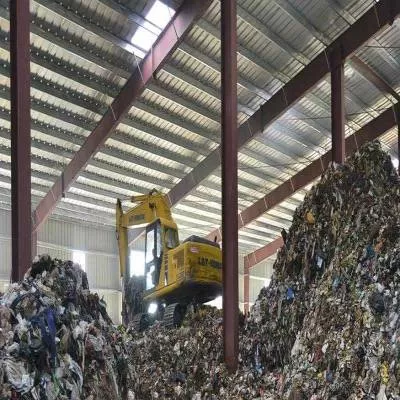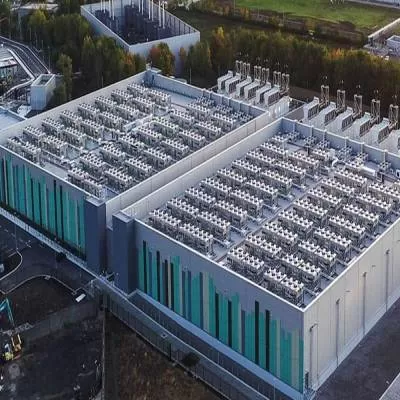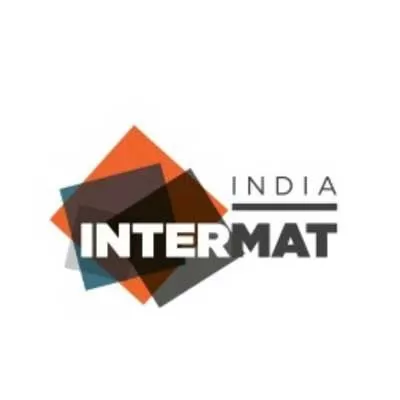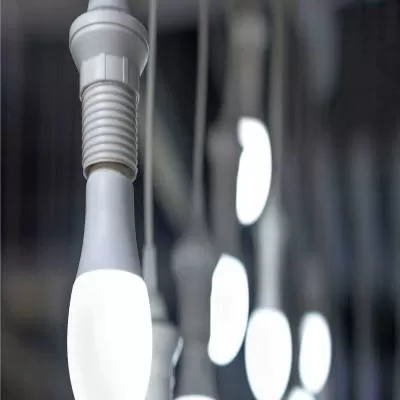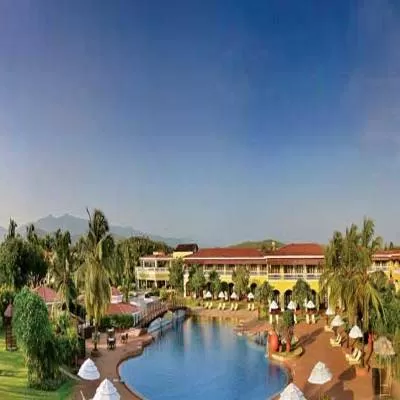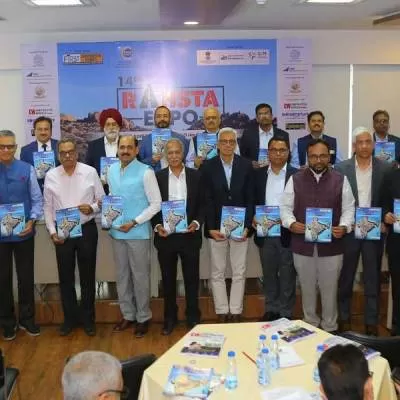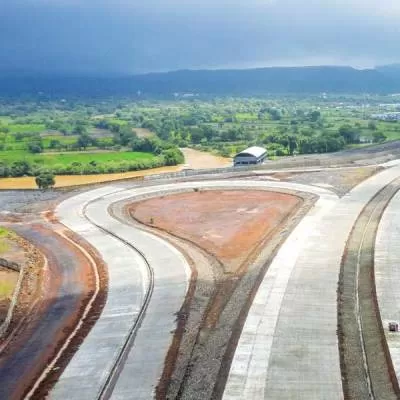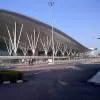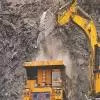- Home
- Building Material
- Lighting
- Delighting customers, whereby their loyalty became unshakeable, has held us in good stead
Delighting customers, whereby their loyalty became unshakeable, has held us in good stead
Vinita Singhania, Managing Director, JK Lakshmi Cement Ltd & President, Cement Manufacturers' Association
Presenting the fifth of a series of interviews with the women of substance who have scaled remarkable heights in the
construction industry.
While her taking over the reins of the then JK Corp Ltd was purely circumstantial, she proved the naysayers wrong with her brilliant handling of the affairs of her company - now rechristened JK Lakshmi Cement Ltd. Going by sheer numbers, a mere five to six years within her taking charge, the annual production capacity of the company trebled from 5 lac tonne to 15 lac tonne, and today, it is a staggering 5 million tonne; as did the annual turnover, which spiralled from the initial Rs 100 crore to the current 1,500 crore. What's more, the lady with the iron determination has now set an even more ambitious target: reaching an annual production capacity of 12 million tonne by 2012.
Present on several Boards and recipient of umpteen awards, Vinita Singhania, Managing Director, JK Lakshmi Cement Ltd & President, Cement Manufacturers' Association, leafs through her journey in an exclusive interview with Group Managing Editor Falguni Padode...
Since you took charge back in 1988, the pace of growth has been nothing short of phenomenal. To what do you attribute this success story?
It would be immodest on my part to term the growth of JK Lakshmi Cement Ltd (formerly JK Corp Ltd) as phenomenal. But yes, it has been satisfactory. I firmly believe that even to maintain a business at the current level, you have to grow continuously. It is a very competitive world out there and to use a cliché, business situations are like a treadmill: you have to run to be stable at a point. And, while I have received support and guidance from a number of people, including my family members, well wishers and the members of Team JK Lakshmi Cement, the biggest support and inspiration has come from my elder brother-in-law, Shri Hari Shankar Singhania, Chairman of our Group, who has captained various industrial bodies in India such as FICCI, the International Chambers of Commerce, etc. It is he who has supported me at every step and encouraged me to take risks.
The company has grown from strength to strength under your leadership. Was the journey an uphill task? Also, what unique skill sets that you brought to the table, have added value along the way?
It was never a burden, and the growth has come gradually. It has been team work and the decision for growth has always been taken only after its feasibility was well understood from broader perspectives. The most important aspect that I may attribute it to, is total empowerment of my team members from every rank and file; having the freedom to think, express, and implement, as my concern has always been that the ultimate result is in the interest of the company and its growth plans. I look at myself more as a facilitator than as a leader and the biggest enabler has been our focus on HR initiatives.
The annual production capacity and annual turnover of the company have grown hugely since your taking over. Can you briefly describe the journey, highlighting the opportunities and challenges along the way?
It is satisfying to look back at the progress that this company has made. However, I keep reminding myself that we have miles to go to avoid any sense of complacency. The cement industry is cyclical and its market behaviour is akin to the commodity market, where the demand-supply scenario plays an important role. I work on very simple rules, i.e. keeping the customer as my focal point. We grew gradually after ensuring that each segment of customers that we are targeting achieves a minimum threshold of satisfaction; and kept working at it till they were delighted and their loyalty became unshakeable. Once my team was also aligned with this philosophy, other things fell into place automatically - like the selection of the right technology, ensuring efficient supply-chain management, branding initiatives and innovative HR practices. The group supported me whole-heartedly in terms of project evaluations, financial resources and above all, goodwill.
Developing human resources is as important as planning for growth and expansion. What has your experience been?
For the success of any venture, it is the men who matter, which is what I have seen from experience. It is one of our group's core values to care for people and we walk the extra mile to ensure that people are looked after, including their family members, so as to free them from other issues and enable them to concentrate totally on the growth plans of the company. This has paid huge dividends. We opt for innovative HR practices, and unbiased and equal importance is given right from the top to the bottom.
In your 23 years in the industry, what is the change you have seen in terms of cement grades available, use of RMC, technological advances, building standards etc.
Prudence lies in going with change rather than resisting it. The cement industry has undergone a sea of change in terms of construction patterns, consumer tastes and ultimately, requirement of cement in different varieties. Consumers today are more knowledgeable, sometimes even more than the producers and their expectations match those of international standards. Accordingly, our product mix has to suit the requirement of today's customers. This entails frequent modifications and manufacturing cycles so as to incorporate the latest technological advances in cement manufacturing. Readymix concrete was the next logical block in the sequence of this evolution and we at JK Lakshmi took timely initiatives, and today, we have about 11 RMC plants operating, with some more in the pipeline. Similarly, to increase the interface with customers, mainly in the housing and construction industry, we have also opted for marketing of one of the best qualities of Plaster of Paris available in India. We are also looking at some other innovative products which will soon be hitting the market.
Recently, there was talk about some builders putting up stand-alone cement factories to counter rising commodity prices. What do you have to say to this?
Our country is poised to grow and achieve its destined position in the global economical arena. Infrastructure development would be one of the key enablers towards this end and there would be continuous growth in cement consumption. Thus, there is no denying that the cement industry would need to continuously gro, and to do that, it would require huge investment. It does not matter whether this investment comes from already established cement players, multinational cement companies or domestic builders. In fact, earlier too, some leading building companies like DLF and Raheja have entered the cement industry; so it is not a new phenomenon.
Cartelisation by cement companies is an allegation. As the first woman President of the CMA, how do you plan to address these concerns?
The Indian cement industry is a very responsible one; amply demonstrated by its continuous growth even during the economic recession or during its down cycle. In fact, very few industries in the country can boast of such enviable growth. The government had set a target which appeared a very ambitious one at the beginning of the Eleventh Five Year Plan, i.e. setting up of capacities to meet the requirement of about 290 million tonne by the end of the Eleventh Five Year Plan in the year 2011-12. Well, the industry has nearly achieved that capacity, that too, one year prior to the deadline, and remember, this is a capital-intensive industry. Today, you require over Rs 500 crore to set up a one million tonne capacity. Therefore the investment that this industry has made during the Eleventh Five Year Plan would be around Rs 77,000 crore. Today, industry is hugely surplus and in fact, it has been most of the time, except during certain patches when it was not able to cater to supplies to certain markets due to logistic constraints. It is therefore really unfortunate that vested interests have spread these canards, possibly with a view to deflect attention from other issues. As President of the CMA, I have advised our Secretariat to prepare an appropriate media campaign to dispel such notions. However, as they say, the proof of the pudding lies in eating it; it has been ensured that cement availability is in abundance.
As the President of the National Council for Cement and Building Materials, what does your role entail?
Basically this is a complimentary role to that of the CMA presidentship and in consonance with the policy of the Government of India. The prime objective of NCBM is to educate the cement industry of the technical services available from this government body and provide solutions to problems faced by the cement industry from time to time. I have found it functioning extremely well and it is in the interest of the cement industry to take advantage of the expertise and the research work being done by NCBM.
How does one keep the work-life balance? What is your advice to women wanting to build a career in the construction industry?
I have now learnt that both these functions are wonderful aspects of my life and require equal attention. Also, it is about commitment and love, towards both, your home and work. I really believe it is not as difficult a juggling exercise as it is made out to be. I can only suggest that one has to take both things in one's stride and not worry too much about striking a balance. If one is confident about oneself and one's abilities, then this issue would not keep popping up in one's mind and the so-called ‘balance' would automatically be achieved.
What are your future plans, professionally and personally?
While I certainly contribute to the planning and growth of my organization, I don't think I am a great planner as far as my personal future is concerned. It is more to do with my philosophy of concentrating on ‘today' and trying to make use of it in the best way.
What CSR activities does JK Lakshmi Cement undertake? Any other philanthropic activities that you would like to share with us?
JK Lakshmi Cement's plant was established in the remotest area (in a NO Industry Zone) in Rajasthan, fully occupied by tribals, and it was a great task to get them to agree to being a partner in the growth in that area by providing them employment, besides improving their lifestyle and economic conditions. The adjoining villages were adopted by us for educational facilities, adult literacy, healthcare for women and children, provision of drinking water facilities, etc. The most modern township was developed with a school to impart the highest standards of education. CSR efforts are a continuous process, and JK Lakshmi Cement is fully committed to giving back to society in one form or the other.
Besides, JK Organisation – our Group – is well known for its philanthropic activities in religious, cultural and educational fields. Under the aegis of the Lakshmipat Singhania Education Foundation, we run schools in almost all our factories apart from some other places and all of them have become educational institutions of repute. I am also associated with religious activities like organising discourses, spiritual campaigns, yoga classes and so on.
Would you like to tell us about any such women of substance? Share your suggestions with us at feedback@ASAPPmedia.com
- Construction
- Update
- Portal
- Magazine
- CW-India
- June
- 2011
- India
- Vinita Singhania
- JK Lakshmi Cement Ltd
- Cement Manufacturers Association
- FICCI
- HR
- supply-chain management
- Cement
- branding
- Readymix concrete
- RMC
- Plaster of Paris
- infrastructure
- Investment
- DLF
- Raheja
- Eleventh Five Year Plan
- Government of India
- NCBM
- Rajasthan
- CSR
Vinita Singhania, Managing Director, JK Lakshmi Cement Ltd & President, Cement Manufacturers' Association Presenting the fifth of a series of interviews with the women of substance who have scaled remarkable heights in the construction industry. While her taking over the reins of the then JK Corp Ltd was purely circumstantial, she proved the naysayers wrong with her brilliant handling of the affairs of her company - now rechristened JK Lakshmi Cement Ltd. Going by sheer numbers, a mere five to six years within her taking charge, the annual production capacity of the company trebled from 5 lac tonne to 15 lac tonne, and today, it is a staggering 5 million tonne; as did the annual turnover, which spiralled from the initial Rs 100 crore to the current 1,500 crore. What's more, the lady with the iron determination has now set an even more ambitious target: reaching an annual production capacity of 12 million tonne by 2012. Present on several Boards and recipient of umpteen awards, Vinita Singhania, Managing Director, JK Lakshmi Cement Ltd & President, Cement Manufacturers' Association, leafs through her journey in an exclusive interview with Group Managing Editor Falguni Padode... Since you took charge back in 1988, the pace of growth has been nothing short of phenomenal. To what do you attribute this success story?It would be immodest on my part to term the growth of JK Lakshmi Cement Ltd (formerly JK Corp Ltd) as phenomenal. But yes, it has been satisfactory. I firmly believe that even to maintain a business at the current level, you have to grow continuously. It is a very competitive world out there and to use a cliché, business situations are like a treadmill: you have to run to be stable at a point. And, while I have received support and guidance from a number of people, including my family members, well wishers and the members of Team JK Lakshmi Cement, the biggest support and inspiration has come from my elder brother-in-law, Shri Hari Shankar Singhania, Chairman of our Group, who has captained various industrial bodies in India such as FICCI, the International Chambers of Commerce, etc. It is he who has supported me at every step and encouraged me to take risks. The company has grown from strength to strength under your leadership. Was the journey an uphill task? Also, what unique skill sets that you brought to the table, have added value along the way?It was never a burden, and the growth has come gradually. It has been team work and the decision for growth has always been taken only after its feasibility was well understood from broader perspectives. The most important aspect that I may attribute it to, is total empowerment of my team members from every rank and file; having the freedom to think, express, and implement, as my concern has always been that the ultimate result is in the interest of the company and its growth plans. I look at myself more as a facilitator than as a leader and the biggest enabler has been our focus on HR initiatives. The annual production capacity and annual turnover of the company have grown hugely since your taking over. Can you briefly describe the journey, highlighting the opportunities and challenges along the way?It is satisfying to look back at the progress that this company has made. However, I keep reminding myself that we have miles to go to avoid any sense of complacency. The cement industry is cyclical and its market behaviour is akin to the commodity market, where the demand-supply scenario plays an important role. I work on very simple rules, i.e. keeping the customer as my focal point. We grew gradually after ensuring that each segment of customers that we are targeting achieves a minimum threshold of satisfaction; and kept working at it till they were delighted and their loyalty became unshakeable. Once my team was also aligned with this philosophy, other things fell into place automatically - like the selection of the right technology, ensuring efficient supply-chain management, branding initiatives and innovative HR practices. The group supported me whole-heartedly in terms of project evaluations, financial resources and above all, goodwill. Developing human resources is as important as planning for growth and expansion. What has your experience been?For the success of any venture, it is the men who matter, which is what I have seen from experience. It is one of our group's core values to care for people and we walk the extra mile to ensure that people are looked after, including their family members, so as to free them from other issues and enable them to concentrate totally on the growth plans of the company. This has paid huge dividends. We opt for innovative HR practices, and unbiased and equal importance is given right from the top to the bottom. In your 23 years in the industry, what is the change you have seen in terms of cement grades available, use of RMC, technological advances, building standards etc.Prudence lies in going with change rather than resisting it. The cement industry has undergone a sea of change in terms of construction patterns, consumer tastes and ultimately, requirement of cement in different varieties. Consumers today are more knowledgeable, sometimes even more than the producers and their expectations match those of international standards. Accordingly, our product mix has to suit the requirement of today's customers. This entails frequent modifications and manufacturing cycles so as to incorporate the latest technological advances in cement manufacturing. Readymix concrete was the next logical block in the sequence of this evolution and we at JK Lakshmi took timely initiatives, and today, we have about 11 RMC plants operating, with some more in the pipeline. Similarly, to increase the interface with customers, mainly in the housing and construction industry, we have also opted for marketing of one of the best qualities of Plaster of Paris available in India. We are also looking at some other innovative products which will soon be hitting the market. Recently, there was talk about some builders putting up stand-alone cement factories to counter rising commodity prices. What do you have to say to this?Our country is poised to grow and achieve its destined position in the global economical arena. Infrastructure development would be one of the key enablers towards this end and there would be continuous growth in cement consumption. Thus, there is no denying that the cement industry would need to continuously gro, and to do that, it would require huge investment. It does not matter whether this investment comes from already established cement players, multinational cement companies or domestic builders. In fact, earlier too, some leading building companies like DLF and Raheja have entered the cement industry; so it is not a new phenomenon. Cartelisation by cement companies is an allegation. As the first woman President of the CMA, how do you plan to address these concerns?The Indian cement industry is a very responsible one; amply demonstrated by its continuous growth even during the economic recession or during its down cycle. In fact, very few industries in the country can boast of such enviable growth. The government had set a target which appeared a very ambitious one at the beginning of the Eleventh Five Year Plan, i.e. setting up of capacities to meet the requirement of about 290 million tonne by the end of the Eleventh Five Year Plan in the year 2011-12. Well, the industry has nearly achieved that capacity, that too, one year prior to the deadline, and remember, this is a capital-intensive industry. Today, you require over Rs 500 crore to set up a one million tonne capacity. Therefore the investment that this industry has made during the Eleventh Five Year Plan would be around Rs 77,000 crore. Today, industry is hugely surplus and in fact, it has been most of the time, except during certain patches when it was not able to cater to supplies to certain markets due to logistic constraints. It is therefore really unfortunate that vested interests have spread these canards, possibly with a view to deflect attention from other issues. As President of the CMA, I have advised our Secretariat to prepare an appropriate media campaign to dispel such notions. However, as they say, the proof of the pudding lies in eating it; it has been ensured that cement availability is in abundance. As the President of the National Council for Cement and Building Materials, what does your role entail?Basically this is a complimentary role to that of the CMA presidentship and in consonance with the policy of the Government of India. The prime objective of NCBM is to educate the cement industry of the technical services available from this government body and provide solutions to problems faced by the cement industry from time to time. I have found it functioning extremely well and it is in the interest of the cement industry to take advantage of the expertise and the research work being done by NCBM. How does one keep the work-life balance? What is your advice to women wanting to build a career in the construction industry?I have now learnt that both these functions are wonderful aspects of my life and require equal attention. Also, it is about commitment and love, towards both, your home and work. I really believe it is not as difficult a juggling exercise as it is made out to be. I can only suggest that one has to take both things in one's stride and not worry too much about striking a balance. If one is confident about oneself and one's abilities, then this issue would not keep popping up in one's mind and the so-called ‘balance' would automatically be achieved. What are your future plans, professionally and personally?While I certainly contribute to the planning and growth of my organization, I don't think I am a great planner as far as my personal future is concerned. It is more to do with my philosophy of concentrating on ‘today' and trying to make use of it in the best way. What CSR activities does JK Lakshmi Cement undertake? Any other philanthropic activities that you would like to share with us?JK Lakshmi Cement's plant was established in the remotest area (in a NO Industry Zone) in Rajasthan, fully occupied by tribals, and it was a great task to get them to agree to being a partner in the growth in that area by providing them employment, besides improving their lifestyle and economic conditions. The adjoining villages were adopted by us for educational facilities, adult literacy, healthcare for women and children, provision of drinking water facilities, etc. The most modern township was developed with a school to impart the highest standards of education. CSR efforts are a continuous process, and JK Lakshmi Cement is fully committed to giving back to society in one form or the other. Besides, JK Organisation – our Group – is well known for its philanthropic activities in religious, cultural and educational fields. Under the aegis of the Lakshmipat Singhania Education Foundation, we run schools in almost all our factories apart from some other places and all of them have become educational institutions of repute. I am also associated with religious activities like organising discourses, spiritual campaigns, yoga classes and so on. Would you like to tell us about any such women of substance? Share your suggestions with us at feedback@ASAPPmedia.com


